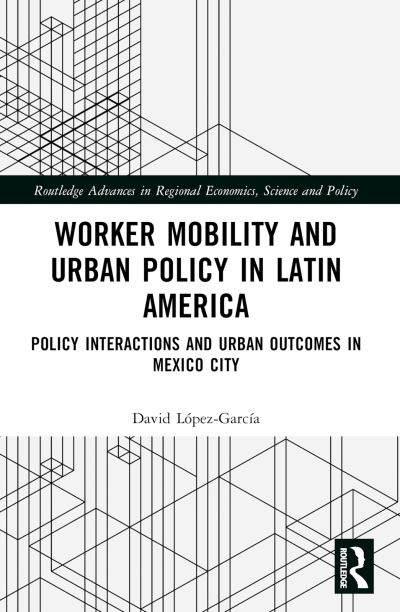
This book argues that urban outcomes are better understood as the result of the interactions between policies from distinct policy domains rather than from any single policy silo. In doing so, the book develops and applies the Policy Interactions Framework to the study of the mobility experience of workers in Greater Mexico City.
Four empirical studies provide the reader with a comprehensive view of how urban policies can sometimes interact at cross-purposes to produce inequitable urban outcomes. The chapters analyze time and distance in the journey to work to quantify and map commuting inequalities, assess the shift in the spatial location of the demand for labor between 1999 and 2019, examine the default housing pathways available for workers, and evaluate the spatial distribution of public and common mobility resources. An outcome of applying the Policy Interactions Framework to the study of workers' mobility is to put forward the choiceless mobility hypothesis: a process by which the interaction between the spatial location of the demand for labor, the housing pathways available for workers, and the political economy of public transport operates to produce geographies of low accessibility to jobs.
The audience of this book consists of scholars and practitioners in the field of urban policy analysis, urban development, and urban political economy in the Global South.
| ISBN: | 9781032199719 |
| Publication date: | 27th May 2024 |
| Author: | David LópezGarcía |
| Publisher: | Routledge an imprint of Taylor & Francis |
| Format: | Paperback |
| Pagination: | 134 pages |
| Series: | Routledge Advances in Regional Economics, Science and Policy |
| Genres: |
Urban communities Regional / urban economics Human geography Development economics and emerging economies Political economy Development studies |